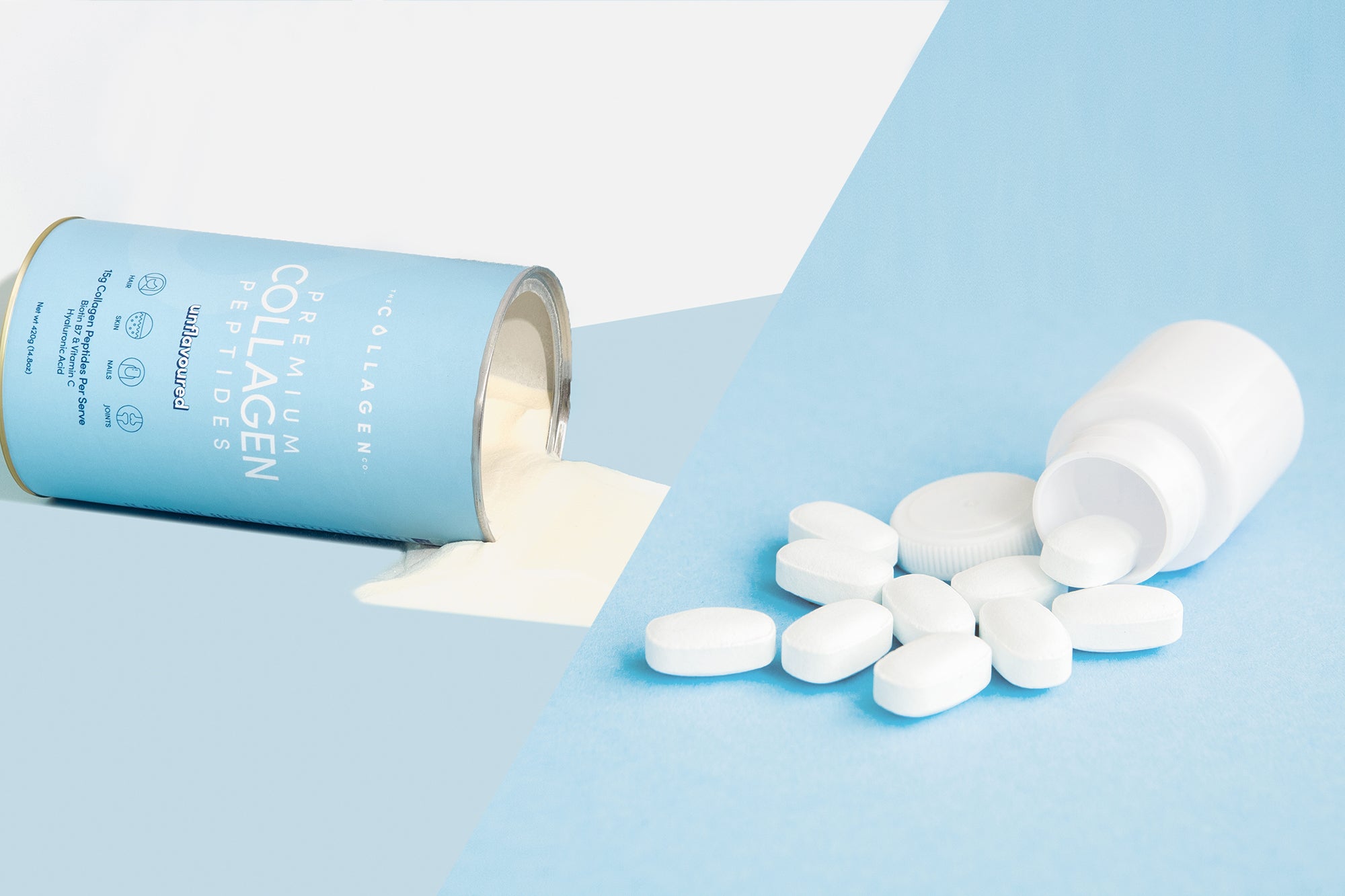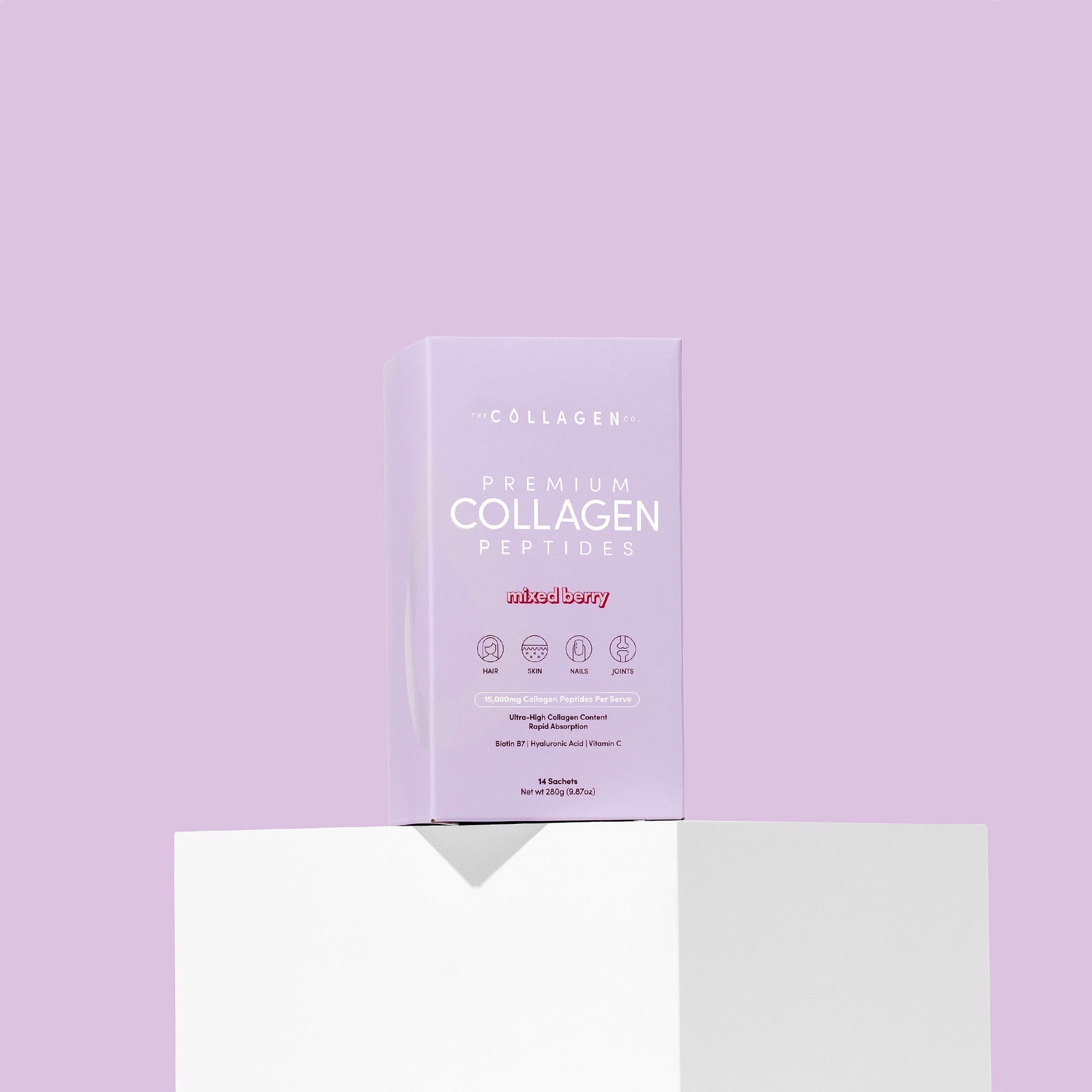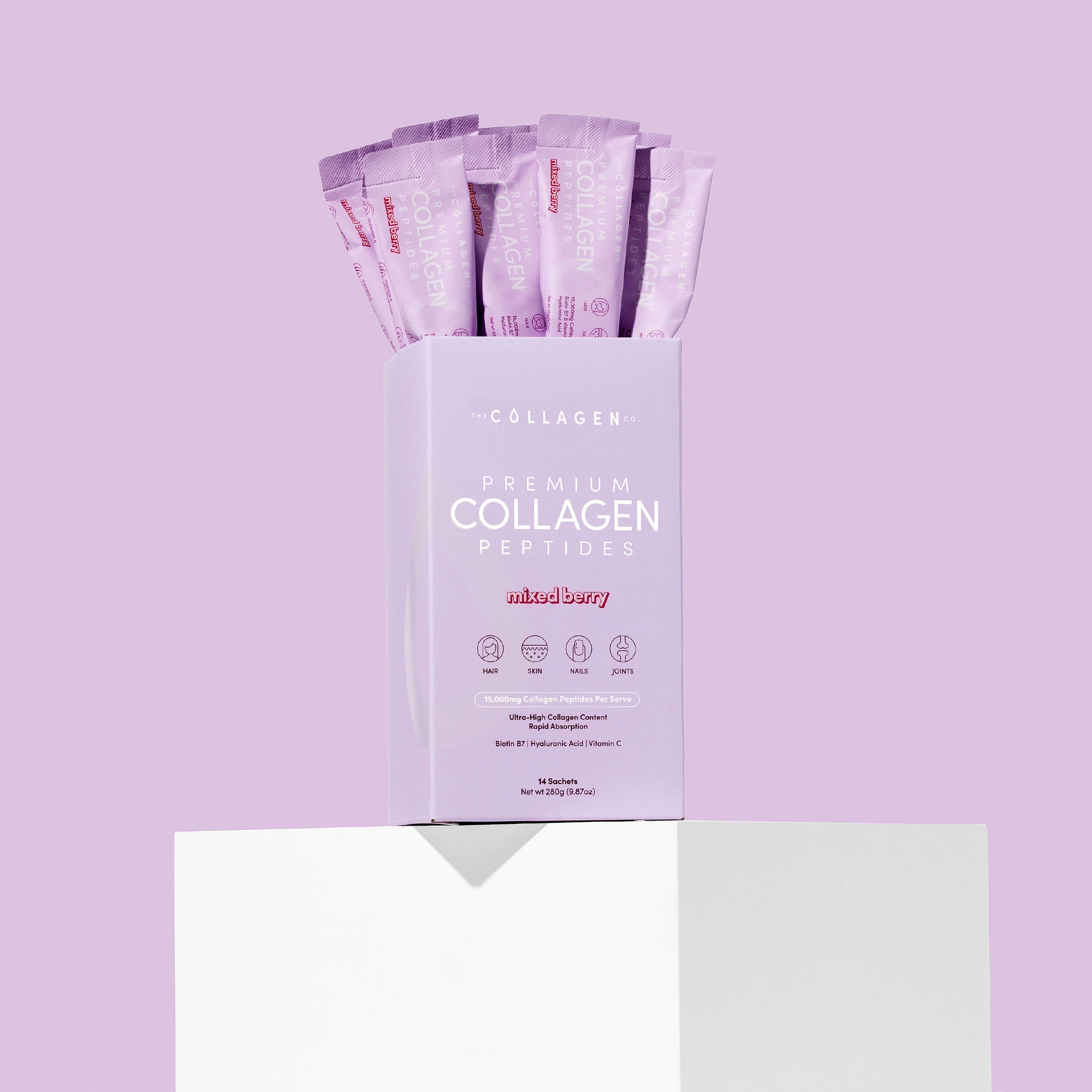Collagen Tablets vs Collagen Powder: What Works Better?
Posted 1st December 2021

“Ultimate elixir of youth”; “potent anti-ager”; “the time-reverser”. No, these aren’t terms used to describe magic potions mired in fantasies and hogwash, but a nutritional supplement that truly delivers on its promises: collagen. Time and again, research supports collagen supplementation could improve skin elasticity, reduce wrinkles, and strengthen hair and nails. The only concern? The term “collagen supplement” doesn't tell you anything about the physical form collagen takes – is it a loose powder to be mixed with drinks, etc., or does it come in tablets (i.e., capsules)? Both are available in the market.
Plus, for every person who insists that collagen powder is the best, there’s another who believes that tablets prevent the active ingredient from being broken down (and reduced in efficacy) by acids in the stomach. So, who’s right? Find out below.
Are collagen tablets better than powdered collagen?
First things first. Is it true that collagen tablets work better than powdered collagen (because of their delivery system)? As it turns out, not at all. See, here's the thing: there's nothing inherently wrong about stomach acids breaking down your ingested collagen peptides. In fact, it’s something to be desired; studies consistently show that your body absorbs hydrolyzed collagen (i.e., collagen that’s broken down into smaller protein fragments) most efficiently. This essentially debunks the supposed “advantage” of collagen tablets being more efficacious than its powder alternative because it keeps the collagen molecules intact.
But wait. Does this mean that collagen tablets are useless? Of course not! There’s plenty of studies supporting collagen tablets’ efficacy. Take this 2014 study published in Skin Pharmacology and Physiology, for instance. The once-a-day administration of a nutrition supplement in capsule form – containing 5 grams of collagen peptides – found improvements in participants’ skin elasticity after 4 weeks. Other studies also found collagen capsules effective in improving skin appearance – minimizing pores, fading hyperpigmentation, promoting resiliency, and reducing wrinkles.
Is powdered collagen better than collagen tablets?
Alright. So, collagen tablets do work. But what about our original question: “Collagen powder vs. tablets: which is better?” Well, now’s as good a time as any to let you know that this has been a misguided way of thinking about the 2 available options all along. The truth is that collagen’s effectiveness doesn’t hinge on the physical form it comes in (i.e., powder, tablet, or even liquid) – but its dosage. The more collagen you get into your body, the more effective it’ll be (and the quicker you’ll see results).
Need more convincing? Look at this 2009 study. Here, the researchers found a significant improvement in skin hydration and appearance of fine lines between participants given 10 grams of collagen peptides daily vs. those who were administered with 2.5 grams after 4 weeks. A recent 2016 study lends further support to this finding. Participants who consumed collagen supplements with a higher bioavailability of collagen dipeptides (CDP) experienced a significant improvement in facial skin moisture and elasticity compared to those who were given supplements containing a lower CDP bioavailability.
Collagen powder vs. collagen tablets: which should I choose?
Once again, it’s important to reiterate that the physical form your collagen supplement takes is of little concern. What truly matters is the dosage you’re getting. And that, in turn, begs the question: “How much collagen should I be taking daily, then?”
Well, the amount used in clinical studies varies from 2.5 to 10 grams per day. As a result, they often report noticeable outcomes (i.e., improvements) after 8 or more weeks – which, to be completely honest, is a long wait for any nutritional supplement. Luckily, based on consumer feedback, we’ve found that taking 15 grams of hydrolyzed collagen daily could accelerate the time it takes for someone to benefit from supplementation. Just so you know: many of our consumers have reached out to rave about their radiant, glowing skin after just 2 weeks of supplementing with The Collagen Co’s Premium Collagen Peptides!
That said, at this point, it’s worth acknowledging that getting 15 grams of collagen through tablets alone could be … well, challenging. That’s because many of the collagen tablets currently available in the market only contain ~3 grams of peptides per tablet (or capsule). Do the math, and you'd realize that this translates into you swallowing 5 pills – and potentially more – daily. As we said, challenging.
Takeaway
Ultimately, though, the choice between collagen powder or collagen tablet comes down to personal preferences – assuming that both options are high-quality, hydrolyzed collagen peptides (and that you still end up with 10 - 15 grams of collagen per day), of course. If you have a tough time swallowing pills though, then naturally, collagen tablets aren’t the wisest choice for you. Instead, you'd do better with collagen powder since they're highly versatile and can be mixed into nearly anything you can think of (e.g., smoothies, coffees, pre-workouts).
And finally: no matter which option you eventually go with, make sure they:
- Are formulated with other “actives”, including vitamin C and hyaluronic acid, that’ll boost its effectiveness
- Stimulate all 3 collagen types (i.e., Type 1, Type 2, and Type 3)
Looking for a collagen supplement that ticks all the boxes? Stop searching. You’ll find it right here on The Collagen Co.










































